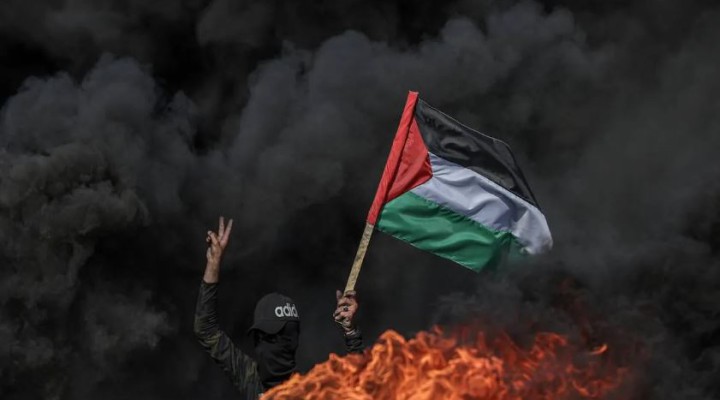Marginalising Palestinians from their own politics

In an example of how Palestinians are routinely marginalised from their own political trajectory, the event which Saudi Arabia will be co-hosting along with the Arab League and the European Union at the forthcoming UN General Assembly under the theme “Peace Day Effort for Middle East Peace” will exclude Palestinians and Israelis. Israel will still be well served, given its allegiances. However, for Palestinians, the scenario is starkly different. The Arab League and the EU had no qualms about the normalisation agreements with Israel, thus the exclusion of Palestinians is yet another way of extending the tactic of talking for Palestinians, instead of allowing a thriving political space.
According to a UN diplomat quoted by the Times of Israel, Palestinian and Israeli representatives were not invited because the meeting is “focused on congregating important global stakeholders on the issue in order to ‘reinvigorate the peace process’.”
For Saudi Arabia, the event is just a necessary step to advance the normalisation agreements. On the other hand, for the Palestinian people, the meeting will regurgitate more of the same futile statements, serving as a reminder of how much they have lost as a result of international impositions. The Palestinian Authority, which is an ardent supporter of the two-state compromise and of meetings that achieve nothing substantive, will likely not object to its diplomats being absent from the meeting.
Yet, while the meeting will just be considered a one off and within the context of UNGA and the normalisation agreements with Israel, it is this kind of marginalisation which has contributed to the Palestinians’ exclusion. With Palestine the concern of everyone but the Palestinians, as the international community has made it out to be, the question of Palestine is so far removed from Palestinians that such justification for exclusion is not contested. Only this is not just a one off, but a reminder of how well the colonial framework still serves Israel and the international community when it comes to Palestine.
Historically, even prior to Israel’s establishment, Palestinians were not consulted on plans which would drastically and permanently alter Palestine. The 1917 Balfour Declaration is one such example. Arguments brought forth to justify the 1947 Partition Plan are another – elevating the coloniser to the point of obscuring the colonised was a tactic used to allow partition to prevail. The same tactic is being employed at the UNGA and anywhere else where Palestinian input should not only be considered necessary but obligatory.
The peace process is not a Palestinian initiative – it is an international imposition created for Palestinians to abide by. This follows the historical farce of how the international community allowed Palestine to be colonised while forcing Palestinians to adhere to measures that were aimed at providing impunity for collaboration with colonialism, rather than find solutions for Palestinians. Saudi Arabia’s initiative is not for Palestinians, but rather for the outsiders that have collaborated with Israel, to come up with possibilities of how to reap any gain, while the colonised people pay the price.
https://www.middleeastmonitor.com/20230915-marginalising-palestinians-from-their-own-politics/
 TheAltWorld
TheAltWorld 
0 thoughts on “Marginalising Palestinians from their own politics”